13 Ways Happy People Spend Their Paycheck

It’s clear that most Americans are largely satisfied with their personal lives, despite the challenges of the past few years. According to recent Gallup polling data, 83% of people in the U.S. consider themselves either “very” or “somewhat” satisfied with their overall personal life situation. Looking deeper, the vast majority of adults also express high levels of satisfaction across many key areas like family life, housing, education, jobs, health and their surrounding communities.
Find Out: Grant Cardone: Here’s How To Become Rich If You’re Earning an Average Salary
Read More: 6 Genius Things All Wealthy People Do With Their Money
However, the same data shows Americans are slightly less content when it comes to their leisure time, standard of living and household income levels. And overall personal life satisfaction did take a hit during the height of the COVID-19 pandemic. So while the nation is brimming with happy individuals for the most part, there are some areas where people feel a little less cheerful about their current circumstances. This reveals a potential opportunity to make some adjustments, prioritize different elements and spend hard-earned paychecks in smarter ways to maximize joy and life satisfaction. By looking at the choices and spending habits of America’s happiest people, we can uncover valuable strategies for living life to the fullest.
Click through to find out how happy people spend their money.

Spend On Experiences Rather Than Things
If you’re looking for more sustained happiness, it’s better to spend your money on an experience, such as a bucket-list safari vacation, rather than a thing, such as new hardwood floors for your condo.
According to a research paper published by scholars at Harvard, “one reason is that we adapt to things so quickly. After devoting days to selecting the perfect hardwood floor to install in a new condo, homebuyers find their once beloved Brazilian cherry floors quickly become nothing more than the unnoticed ground beneath their feet. In contrast, their memory of seeing a baby cheetah at dawn on an African safari continues to provide delight.”
According to the research paper, another reason experiential purchases provide more happiness is that we derive joy from anticipating and remembering experiences, but we usually only get happiness from things while we’re actively using them.
Check Out: 6 Things Minimalists Never Buy — and You Shouldn’t Either
Explore More: 6 Frugal Habits of the Super Rich and Famous
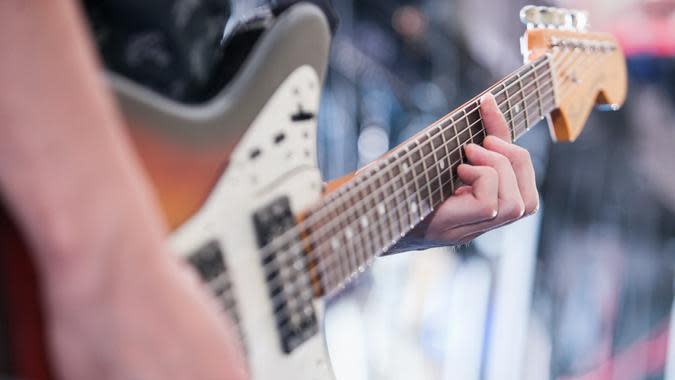
Buy Material Goods That Help Improve Experiences
The exceptions to the experience vs. things rule are things that help us improve our experiences. This category of “experiential goods” includes electronics, musical instruments, and sports and outdoor gear that help us get outside. A study published in the Journal of Consumer Psychology found that “experiential products provide similar levels of well-being compared to life experiences and more well-being than material items.”
For example, a smartphone can help us to communicate with others, and self-improvement apps on the phone can help better our lives in the long term. Even though the phone itself might not produce happiness, it’s a conduit to experiences that do make us happy.
Be Aware: 10 Expenses Most Likely To Drain Your Checking Account Each Month

Buy Gifts for Others
It might seem counterintuitive, but people are happier when they spend money on others than when they spend money on themselves — and you don’t need to spend a large sum of money to reap the benefits of “prosocial spending.”
Harvard researchers found that “even in very poor countries like India and Uganda — where many people are struggling to meet their basic needs — individuals who reflected on giving to others were happier than those who reflected on spending on themselves. What’s more, spending even a few dollars on someone else can trigger a boost in happiness.”
One study conducted by the researchers found that asking people to spend as little as $5 on someone else over the course of a day made them happier at the end of that day than people who spent the $5 on themselves. So next time you find yourself with a few dollars to spare, buy a gift for a friend or family member instead of treating yourself.
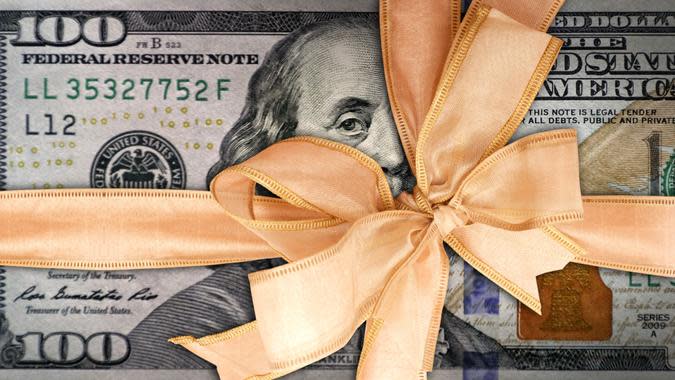
Donate To Charity
Just as buying gifts for others triggers happiness, so does donating to charity.
“People who donate money to charity are happier in poor and rich countries alike,” Elizabeth Dunn, a psychology professor at the University of British Columbia, said at a 2015 conference, the New York Post reported.
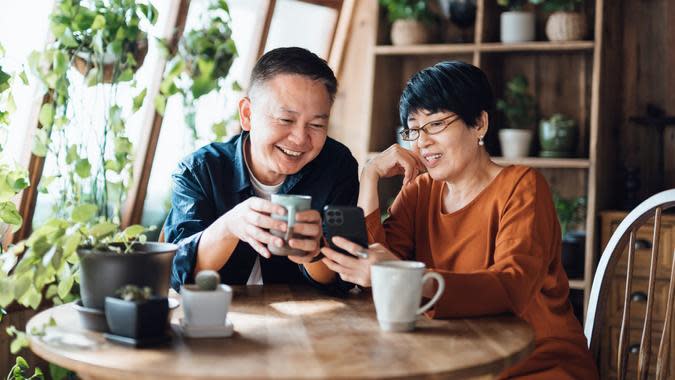
Indulge In Small Pleasures Rather Than Big Splurges
You can save money by giving up your Starbucks lattes, but little indulgences like fancy coffee drinks, pedicures and super-soft socks can make us happier than large splurges.
“One reason why small frequent pleasures beat infrequent large ones is that we are less likely to adapt to the former,” according to a research paper published by Scholars at Harvard.
The research paper gives the example of going out for an after-work beer vs. buying an expensive dining table. Each time you go out for beer, the experience is slightly different, whether because you choose a different beer or the conversation is different, while the table remains the same every time you use it. It’s often the newness of something that’s enjoyable, so once you’ve adapted to an object you no longer derive the same pleasure. That’s why small pleasures could be a better way to spend your money than making one big purchase.
Learn More: I’m Part of the Upper Middle Class: Here’s What My Finances Look Like
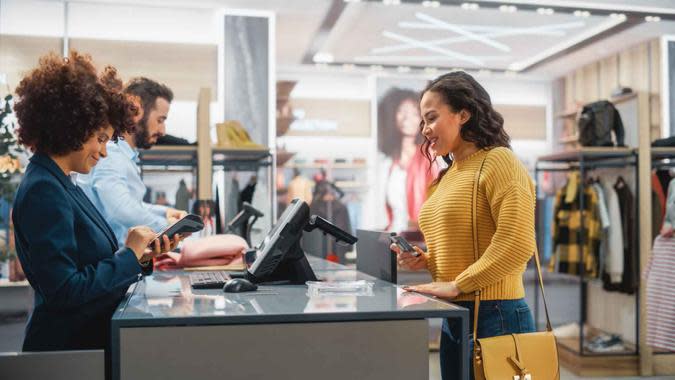
Spread Out Your Spending
Another reason why small pleasures make us happier than big splurges is that we’re breaking up our periods of enjoyment. According to the Harvard research paper, spreading out our spending “introduces a temporal discontinuity between experiences and thus ameliorates the effects of adaptation.”
So it’s better to spend $25 on something now and another $25 on something else a few days later, rather than spending $50 on one thing all at once.
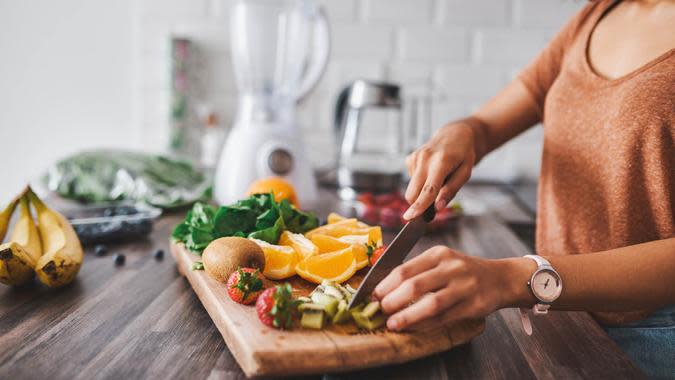
Buy Now, Consume Later
Not only does delaying consumption provide more anticipation, which can extend the happiness we receive from a purchase, but it can also help us to make purchases that have more of a long-term benefit.
For example, a study published in Organizational Behavior and Human Decision Processes found that when study participants were asked to choose between healthy and unhealthy snacks, they chose unhealthy snacks for immediate consumption, but healthy snacks if they were choosing a snack to eat the next week.

Avoid Comparison Shopping
Very rarely do we spend money without doing some comparison shopping, but this can actually detract from the happiness we receive from our purchase.
For example, a 2008 Harvard study divided students into two groups: One group was presented with potato chips and chocolate, and the other group was presented with potato chips and sardines. The group presented with the potato chips and chocolate predicted they’d like the potato chips a little bit, while those presented with the potato chips and sardines predicted they’d love the potato chips. However, once they ate the chips, students in both groups liked them the same amount.
When making a purchase, it’s important to evaluate what you are buying on its own, rather than comparing it to whatever else is available, because the purchases you don’t choose won’t have any bearing on your ultimate enjoyment of the purchase you do make.
Read Next: 6 Ways To Tell If You’re Financially Smarter Than the Average American

Think About the Big Picture Before Making a Major Purchase
Before making a big purchase, such as a summer home, it’s important to think about how the purchase will fit into your daily life, and keep in mind all of the minor details that could end up affecting your overall happiness.
The Harvard researchers give the example of buying a lake house. While most people who aspire to buy a lake house think of the peace and quiet and sunset views, they often fail to think about less pleasant details such as the long drives to and from the house or an abundance of mosquitoes.
“Cast in the soft light of imagination, these unpleasant, inessential details naturally recede from view, potentially biasing consumers’ predictions about the degree of happiness that their purchases will provide,” the study said.
That’s not to say you shouldn’t make a major purchase because there are some drawbacks; rather, it’s important to be realistic about your purchase so you don’t overestimate the happiness it will provide. Believing a purchase will make you happier than it actually will could make you more likely to spend money on something you can’t actually afford.
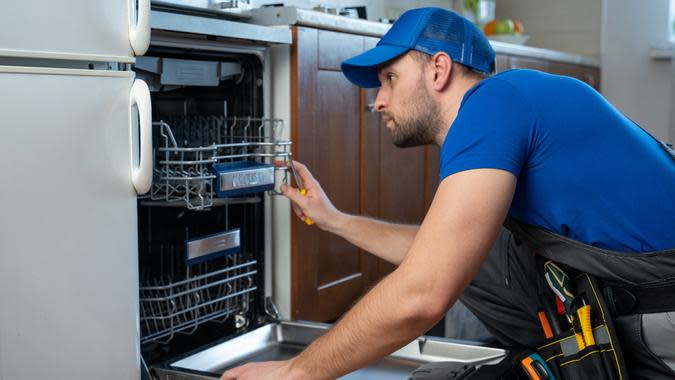
Buy More Time
Spending money on services that buy more free time, such as a house cleaner or repairman, could be worth the cost.
“If we spend our money to open up more ‘free’ hours in the day, we can spend our time enjoying the things in life that both empirical and anecdotal evidence suggests make us happy,” Sonja Lyubomirsky, author of “The Myths of Happiness,” told Prudential.
That time you’re not cleaning or making repairs around the house can give you free time to spend with loved ones, go for a hike, read a book or volunteer — all of which could make you happier.

Invest In Personal Growth and Development
One of the big habits of truly happy people is their dedication to continual self-improvement. They view learning and personal growth not as a luxury, but as an essential investment in themselves. This could mean splurging on an online course to pick up a new skill, hiring a career coach to help map out goals, attending a transformational workshop or retreat, or simply buying inspiring books and audiobooks to expand their mindset. The happiest individuals understand that no matter how much you currently have or achieve, there’s always room for growth.
Find Out: 7 Key Signs You’ve Reached Financial Freedom

Pay For Convenience
In our hustle-obsessed society, time is arguably one of our most precious commodities. Happy people recognize that fact, which is why they’re willing to pay a premium for services and products that save them time and reduce stress.
From grocery delivery to professional organizers, outsourcing tedious chores frees up more room for what truly matters. Having help allows happy people to spend their limited free time focused on joyful hobbies, quality time with loved ones or simply relaxing versus being bogged down by an endless to-do list.

Prioritize Spending on Health and Wellness
You can’t put a price tag on your health and well-being. That’s why the happiest individuals make self-care spending a top priority, recognizing that when your body and mind aren’t running optimally, nothing else can. This could mean investing in a premium gym membership, hiring a personal trainer, working with a therapist or life coach, buying high-quality foods or scheduling regular massages and wellness treatments. Taking a proactive approach to self-care isn’t just about treating issues as they arise — it’s about consistently nurturing the greatest asset you have…you.
Laura Beck contributed to the reporting for this article.
This article originally appeared on GOBankingRates.com: 13 Ways Happy People Spend Their Paycheck
